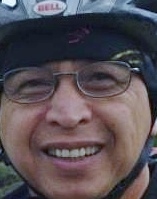This was my response when I was asked for the first time by an Ateneo de Naga alumnus why I teach at the University of Nueva Caceres (UNC) and not at the Ateneo de Naga University.
But the cogent answer is: Dr. Bong Sison, Vice President for Administration, was the first to accept my application.
There is nothing wrong with UNC. It is a university in good standing. I can teach wherever I want to. Educators are like missionaries. We go where we are needed. End of the story.
But the story does not end. A retinue of Ateneo alumni continues to ask me, why not at the Ateneo de Naga? Although I am getting tired of being asked the same question over and over again, I can also sense the concern of my alumni friends. But I cannot exactly pinpoint what it is.
I can only surmise that the reason why some alumni expect me to teach at the Ateneo is because I am an alumnus of both the Ateneo de Naga University and the Ateneo de Manila University – a case of an alumnus going back to his alma mater, I suppose. I also have some other credentials that must have added an extra weight to why some alumni believe I should teach at the Ateneo instead.
Admittedly, Ateneo de Naga is my first choice for obvious reason. I believe in the RatioStudiorum, the document that formally established the globally influential system of Jesuit education. Also, it has always been my plan to give back to the school that played a significant role in my intellectual, physical and spiritual development. Thus, I owe a lot to the school as an institution, but more so to the many Jesuits who showed me the way.
As I told Fr. Joel Tabora, the former Jesuit president of the Ateneo de Naga whom I asked to be my reference, “The problem with me is I think like a Jesuit.”
I was a Jesuit scholastic when the imposition of Martial Law in 1972 radically changed my views. Because of the oppressive political conditions during that time, I was convinced that the best way to “serve the people” was to join the national democratic struggle. So I left the Society and followed a different path.
It makes a lot of sense, therefore, that I should go back to the Ateneo, just like some fellow alumni who just want to share their knowledge and skills, no longer for the money, but simply to give back.
So in August of 2013, I met with Fr. Jun Viray, president of the Ateneo de Naga, and told him of my desire to teach at the Ateneo. He then referred me to Dr. Fred Fabay, Academic Vice President, whom I met on August 27, 2013. It was not until October 2, 2013 that I got an email from Dr. Fabay. Without getting into details and by reading in between the lines, I could infer from the email that there was no opening for me at least for the coming school year.
While I was disappointed, I took the decision with “it’s not meant to be” type of attitude. Probably there were more qualified candidates. Fair enough.
The decision did not lessen my admiration for the Jesuits. The debt of gratitude that I owe the institution and the many teachers – lay and Jesuits – who taught me for years remains unabated. My loyalty to my alma mater is as strong as ever.
Crying over spilled milk is not my cup of tea, so to speak. So in February of 2014, following the suggestion of Mitoy San Jose, a retired professor from UNC, I emailed my application to Dr. Bong Sison. In less than a month, I was hired. It was a quick decision.
I’ve been telling my friends that I found the UNC administrators more welcoming, proactive and supportive.
Dr. Yolly Castroverde, Assistant of the Vice President for Academic Affairs, went out of her way and asked CHED to waive the teaching license required from a visiting professor like me, who wanted to teach at the College of Education.
Dr. Jo Alba, dean of the College of Arts and Sciences, accepted my initiative to design and teach a course on cross-cultural studies.
Dr. Emma Lirag, dean of the College of Education, immediately asked me to speak to the faculty on “Globalization and Education” before the start of the school year.
If all this means anything, it tells me that UNC needed me more than the Ateneo.
I don’t blame the Ateneo for not hiring me. I am sure it has its reason for doing so.
But the increasing number of Ateneo alumni who continue to ask me the question, why UNC and not the Ateneo, deserves an honest answer.
The ball is no longer in my court.








Leave a Reply